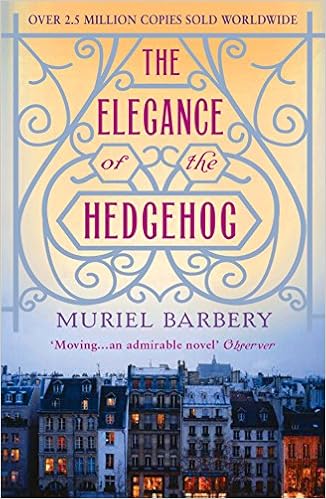... pity the poor in spirit who know neither the enchantment nor the beauty of language.Mme Renée Michel is the concierge of a Parisian apartment building, a fifty-four-year-old widow with bunions and bad breath. As far as the residents know, she is a typical concierge, watching television and reading tabloids, alone except for her cat Leo. In secret, though, she is passionate about philosophy, art and language (a misplaced comma in a note from one resident drives her to distraction), and she observes her employers with a clear and critical eye.
One of the block's residents is Paloma Josse, a twelve-year-old girl who has surveyed the life set out for her and decided, instead, to commit suicide on her thirteenth birthday. She is alienated from her vacuous family, who don't appreciate her need for silence or intellectual conversation.
Then another resident, an elderly food critic, dies: and his apartment is bought by a mysterious Japanese gentleman, who transforms the lives of both Paloma and Mme Michel.
There is a lot of philosophy here, leavened by humour and by vignettes of the lives of wealthy Parisians. The snobbish pretensions of the moneyed residents are set against Renée and Paloma's desire for beauty, truth and meaning. Both have given up hope: both have hope restored to them.
In absolute terms, very little happens in The Elegance of the Hedgehog until the end of the novel: in terms of the mental lives of the characters, though, a great transformation is wrought -- quietly, secretly, without fuss. I found myself caught up in Renée's boundless appetite for learning (and for patisserie!), in her journalling ('I witness the birth on paper of sentences that have eluded my will and appear in spite of me on the sheet, teaching me something that I neither knew nor thought I might want to know') and in her reminiscences and friendships. I'm less interested by Paloma, because I find her arrogant: but towards the end of the book she shows signs of relaxing into a more likeable, and less miserable, human being, one who's better equipped to appreciate the random beauty of the world. And the novel's ending, though sudden and wholly unexpected, does feel right in hindsight.
Also, I found the translation transparent: that is, the prose felt French but there were no infelicities of phrasing or idiom. It flowed naturally, which is an enviable quality in a translated work.

No comments:
Post a Comment